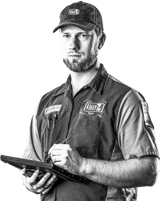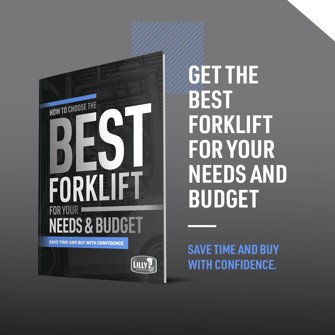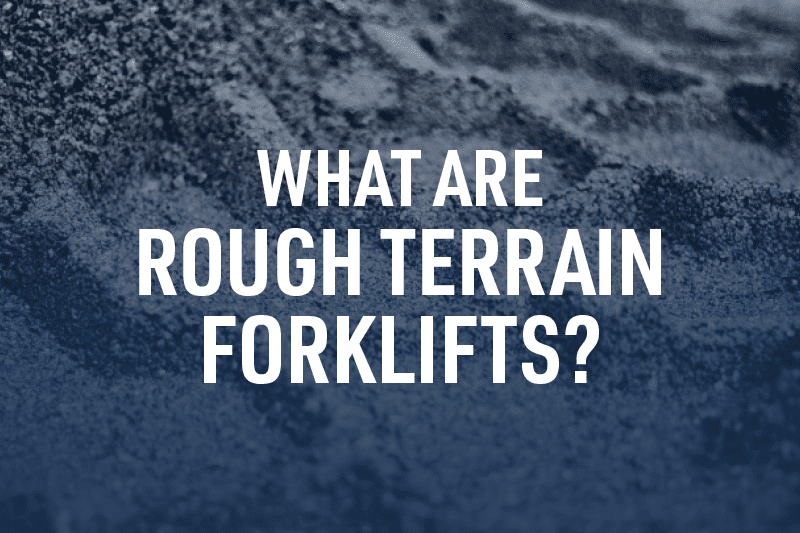
Different operations and situations call for different types of forklifts, so when someone comes in looking to purchase one, there is no “standard” option.
However, we can usually determine the right forklift for the job by finding out a few things about the space in which you or your team will operate it.
And if you’re already in the market for something built for “rough terrain,” you probably already have a good idea of what you need.
In this brief guide, we’ll help define what rough terrain forklifts are and the options available to you, so you can make the best informed purchase for your environment.
Rough Terrain Forklifts as Defined by OSHA
OSHA differentiates seven different classes of forklifts with the first four being "indoor" and the latter three "outdoor." They are designated as such:
- Class I: Electric Motor Riders
- Class II: Electric Motor Narrow Aisle
- Class III: Electric Motor Hand Trucks or Hand/Rider Trucks
- Class IV: IC (Internal Combustion) Engine Trucks with cushion tires
- Class V: IC Engine Trucks with pneumatic tires
- Class VI: Electric and IC Engine Tow Tractors
- Class VII: Rough Terrain Forklift Trucks
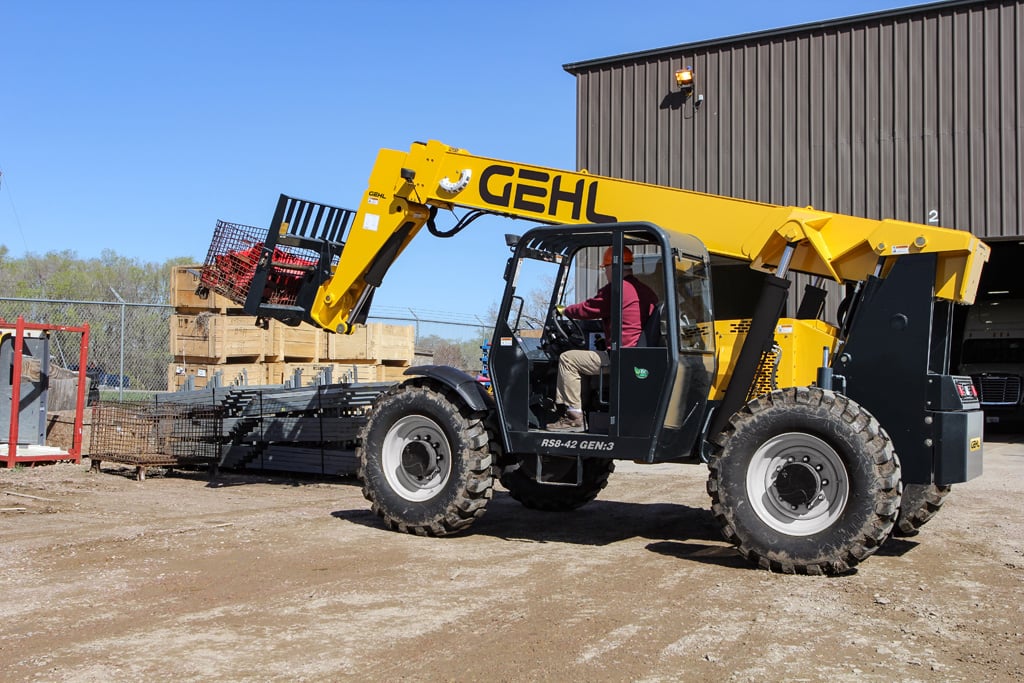
Directly from the OSHA site, this is their definition: "Rough terrain forklift is a generic term used to describe forklifts typically intended for use on unimproved natural terrain and disturbed terrain construction sites."
In other words, we're talking about gravel, uneven dirt, muddy ground, and hills and ditches. That does not mean that a rough terrain forklift is any forklift outfitted with heavy duty tires.
Though rough terrain forklifts do, by definition, come with exceptionally rugged tires, they are their own classification of forklift for a reason. Their construction is more robust overall, and they’re designed with higher clearances than other forklifts for improved maneuverability and extended outdoor use.
Rough terrain forklifts are also called all-terrain forklifts but, just to be clear, that does not mean they’re able to operate over every possible terrain. Personally, I wouldn’t try my luck with quicksand, for example.
Types of Rough Terrain Forklifts
Now that we have a clearer idea of the classification of rough terrain forklifts, what are the different types available? Again, the one you choose will depend on the appropriate tasks.
There are essentially two kinds on the market - vertical mast and variable reach forklifts.
Vertical Mast
Vertical or straight mast forklifts closely resemble vertical mast forklifts used inside warehouses, except they’re designed for rugged terrain and outdoor applications, such as construction or lumber handling. One example we like to use is if forklifts are pickup trucks, pneumatics are your 4x2s, while rough terrains are 4x4s. These are usually what people are looking for when purchasing a rough terrain forklift.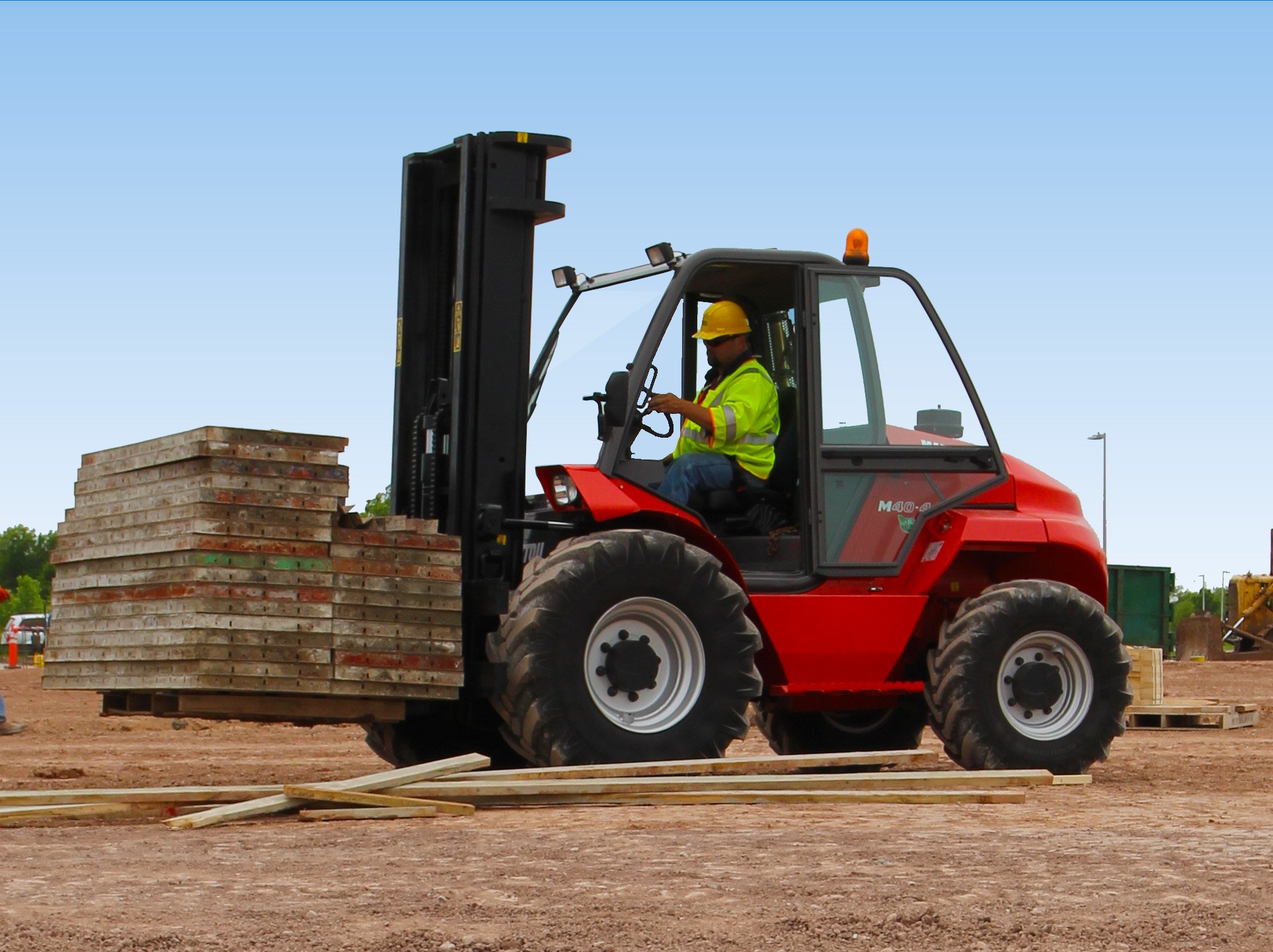
Variable Reach
Also called telehandlers, these specialty forklifts are characterized by a telescopic boom (which may or may not rotate) that allows them to lift and place loads at varying lift heights and distances. These are designed for construction applications in which loads need to be lifted and placed beyond where vertical masts can reach, such as on the 2nd or 3rd floor, without separating the bundle. 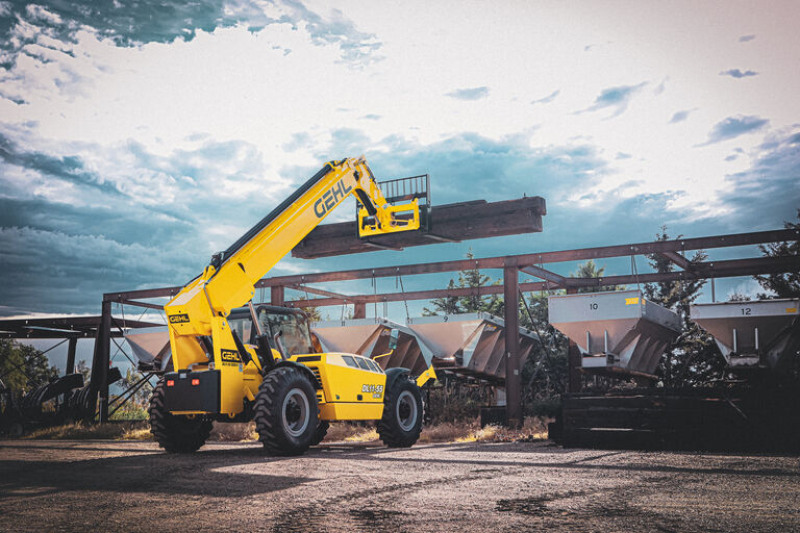
Choose the Right Forklift for Your Environment - We Can Help
Whether you're looking to rent or buy an all terrain forklift for your work environment, we have several options available and are happy to help you make the right choice.
Feel free to contact a forklift expert at The Lilly Company online or by phone 844-LILLYCO (1-844-545-5926).
Or stop by to see us at one of our 13 locations in the Mid-South. We’d love to learn more about your business and how we can help.
Arkansas - Jonesboro
Alabama - Birmingham, Dothan, Irondale, Madison, Mobile, and Montgomery
Mississippi - Belden and Richland
Tennessee - Jackson, Kingsport, Knoxville, and Memphis
Further Reading:
Want to learn more about how marble giant Imerys uses Lilly Company’s Toyota forklifts to process more than 1.5 million pounds of marble each year? Check out this case study.
How to Buy the Best Forklift for Your Work Environment
Top 4 Reasons to Rent Vs. Buy a Forklift
Forklift Replacement Parts: Should I Use Oem Vs. Aftermarket Parts?
Posts by Tag
- Forklift (61)
- Forklift Service (19)
- Electric Forklifts (16)
- Forklift Safety (14)
- Forklift Attachments (12)
- Toyota Forklifts (12)
- Warehouse Planning (10)
- Parts (9)
- Warehouse Automation (8)
- Clark Forklifts (7)
- Loading Docks (7)
- Material Handling Education (7)
- Pallet Racking (7)
- Customer Solutions (6)
- Forklift Batteries (6)
- Forklift Rental (6)
- Purchasing Options (6)
- Aerial Equipment (5)
- Heavy Equipment (5)
- Forklift Accessories (4)
- Forklift Fleet Management (4)
- Forklift Tires (4)
- Forklift Training (4)
- Products (4)
- Utility Vehicles (4)
- Yard Spotter Trucks (4)
- Linde (3)
- Pallet Jacks (3)
- Specialty Forklifts (3)
- Used Equipment (3)
- IC Forklifts (2)
- Manitou (2)
- Warehouse Doors (2)
- COMBiLift (1)
- Custom Shop (1)
- Forklift Brakes (1)
- Forklift Warranty (1)
- Gehl (1)
- Komatsu (1)
- Product Review (1)
- Recruitment (1)







